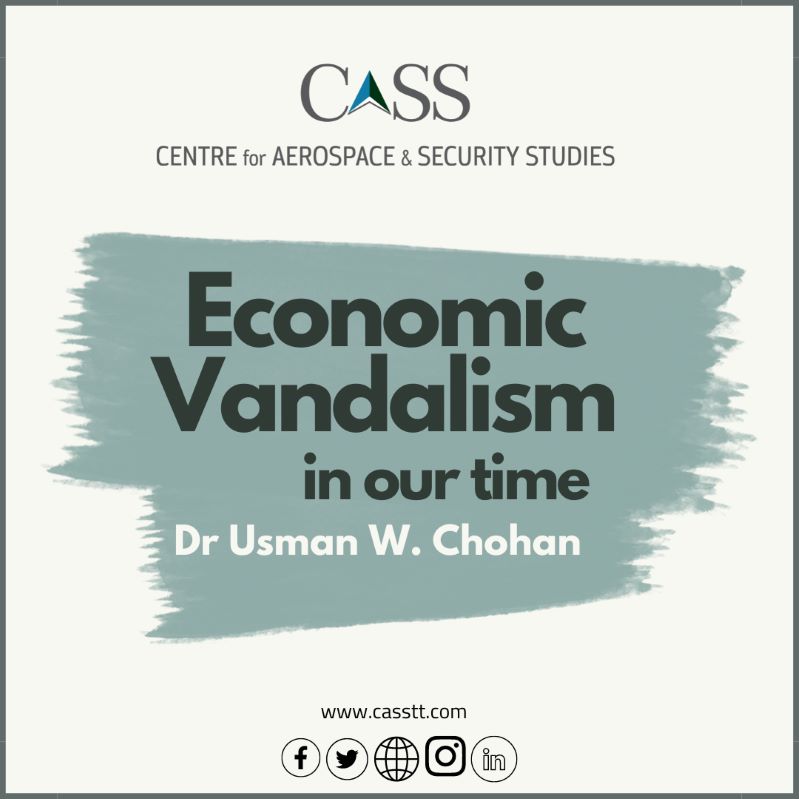The philosophy that underpinned globalisation premised itself on mutually-advantageous opportunities that would arise from greater interconnectedness and exchange. However, globalisation tended to exacerbate the levels of inequality found both within and between countries. The countries which seized upon the dynamism of globalization gained disproportionate benefits, sometimes (if not always) at the expense of countries.
Therefore, the interconnectedness advocated by globalists tended to mask the sense of economic antagonism by framing “competition” as a positive force rather than a negative one. Those who had recognized the negative and manipulative aspect of international commerce were denounced as antiquated “mercantilists,” referring to the colonial era exploitation of the world by a handful of rival and venal European powers. These capitalist-imperialist entities would try to cut one another to size at least as much as they would try to grow their share of the globe’s wealth.
Trump’s election in late 2016 brought a revised mercantilist tone to international commerce, as he vowed to punish the countries that had disproportionately benefited from globalization, most notably China. Through harsh rhetoric and a series of protectionist measures, Trump sought to cut China’s economy down to size. China responded with counter-measures that punished Americans located in the regions which most heavily voted for Trump.
This spat between the two countries has had ramifications for economic growth far beyond their own borders. Europe, the Far East, Latin America, Africa, and indeed South Asia have felt the fallout of a neo-mercantilist outlook in this twilight of American economic domination.
Last month, following a fall in the value of the Chinese Renminbi (passing the 7RMB to a dollar mark), the Trump administration acted quickly to designate Beijing as a “currency manipulator, “and it released a statement vowing to take action with the International Monetary Fund (IMF) in order to eliminate “China’s competitive advantage.” Trump also tweeted several rants about the Chinese devaluation and China’s economy more broadly.
Naturally, global equity markets sunk upon the news, with the leading S&P 500 falling by three percent in the 24 hours following the announcement. However, the U.S. dollar also fell against other major currencies (such as the Japanese yen). While some apologist financial news outlets described the US designation of China as currency manipulator to be largely symbolic, many economists expressed dismay at the news and cautioned against further headwinds to the US and larger global economy; and many also pointed out that China is not in fact a currency manipulator.
Yet the unilateral actions taken by the United States to jeopardize the global economy for internal political point-scoring is a worrying trend that, at least in the American financial media, simply isn’t being called out enough. The argument that needs to be highlighted is that such short-termism and unilateral economic badgering is a form of vandalism. It is an escalating vandalism because it is harming global prosperity and failing to normalize existing inequalities by in fact disproportionately punishing the have-nots ( and not least the Trump voters in rural America).
The Trump administration thinks that it can weaponise the vestiges of American economic hegemony to coerce China towards its own unilateral preferences. But the tariffs and other measures that it has been imposing have resulted in heightened uncertainty and disruption, with the ripples of the tussle between the two largest economies emanating outward and back in to their own societies.
The vandalism is attributable to simplistic economic notions that have been fed to the Trump administration. Recent books about the Trump White House show how the President has repeatedly ignored the advice of seasoned economic and financial experts, only to appoint marginal quack-doctors (e.g. Peter Navarro).
Trump’s biggest conceptual failure in economics is that he has not grasped the nature of the American “exorbitant privilege.” If the US Dollar is the world’s reserve currency, then countries other the US will need to use it to conduct their own trade, and so the demand for USD will always be greater outside the US than inside it. This creates a deficit for the US in terms of the outflow of currency. Trump cannot have it both ways: dominance over global commerce as well as a trade surplus in international markets. That would only be possible if the US accounted for more than 51% of the world economy, but it no longer counts for even 25%.
Ultimately, this economic vandalism is part of a broader trend in international relations to forsake a “rules-based order” in favor of petty one-sidedness. That order was particularly useful to the US and its allies, since they shaped the rules! They are now doing away with the pretense of order and rules at their own expense.
The spectre of today’s mercantilist brinksmanship is not compatible with (at least the rhetoric of) shared prosperity. Washington’s own credibility as a global economic powerhouse will be permanently and irreversibly damaged by this process.
As with the Vandals who swept Rome after the rules-based order of the empire crumbled, so too are the Trumpian vandals sweeping for petty spoils while the shared architecture of empire is lost.
The writer is director for Economics and National Affairs at Centre for Aerospace and Security Studies (CASS). This article was first published in ‘The Nation’ https://nation.com.pk/04-Oct-2019/economic-vandalism-in-our-time. He can be reached at [email protected]





